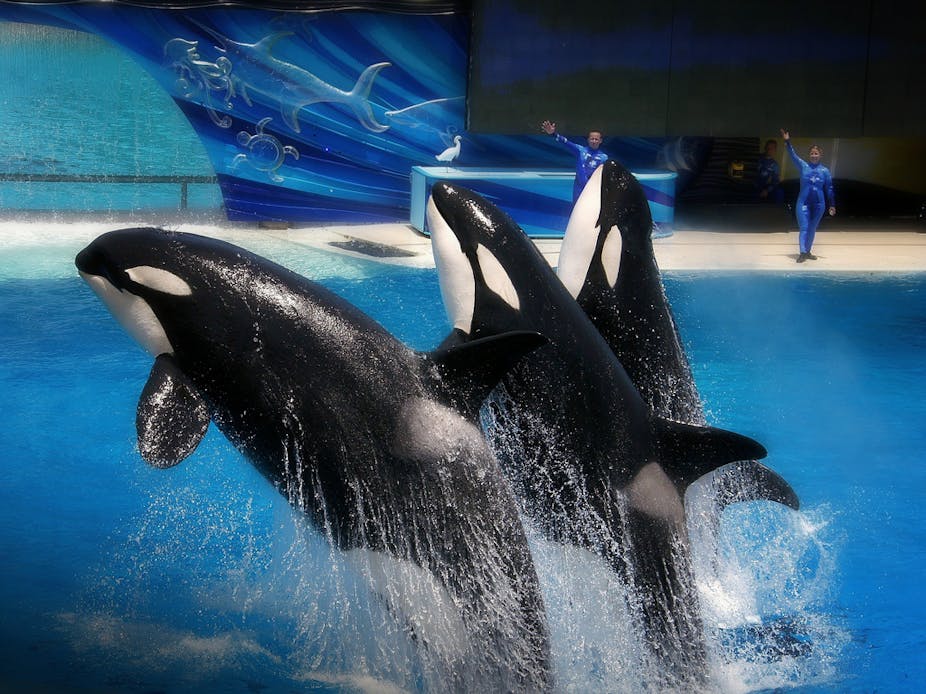Animals are a mainstay of global tourism development. They’re consumed in fishing and hunting, and used as part of “experiences” - horses in trail rides, marine mammals in theme parks, whale sharks for us to swim with.
In Sea World USA, orcas (killer whales) are kept for the entertainment of the public. We deprive them of their liberty to do this, but it is rarely questioned – except, ironically, when a captive orca kills or injures their human “trainer”, or when animal rights organisations launch a specific campaign on the issue.
Recently, an article on The Conversation stated:
Because animals don’t have the strong protections that come from legal personhood, we don’t give their interests serious consideration when we make decisions about habitat destruction.
A similar problem occurs in tourism, where the denial of personhood,or failure to recognise the individual, leads to a lack of care for the rights and welfare of animals, even in so-called ecotourism.
Ethics in tourism
Tourism was for too long seen as a benign industry. A business-centred approach to discussing tourism often meant that the prime concern was to attract more tourists and increase economic benefits, with insufficient critical analysis of its effects. There has been little serious consideration of the ethical principles underlying many tourism products.
I have tried to encourage tourism academics, planners and operators to consider their own ethical approach, especially now in the context of sustainability. It’s a starting point to thinking carefully about the ethics of the industry in which they are engaged.
In 1999, the United Nations World Tourism Organisation (UNWTO) adopted a Code of Ethics. In 2004, the Organisation formed The World Committee on Tourism Ethics as an independent, non-aligned body to oversee the application of the Code.

However, the Code of Ethics does not include any mention of animals. It is anthropocentric and assumes species superiority for humans.
It’s hard enough to encourage tourists, tourism operators and government regulators to consider issues of Corporate Social Responsibility (CSR) for human society. Expanding this concern to animals is a tough task in many cases. Nonetheless there has been increasing demand to improve animal welfare. Animal rights is more complicated and contested.
There are three different ways to look at the issue of animal use: welfare, rights and utilitarianism.
Welfare and rights are often confused. “Rights” is often used in the literature when it is actually “welfare” that’s being considered. So what is the difference between these terms?
Animal welfare
Welfare represents the “bigger cages” argument. It assumes it is fine for animals to be confined, as long as they are well treated. It focuses on animal health, both psychological and physical. This debate tends to segue into conversations about the potential damage to income streams if animals die or become sick.
To use the example of orcas at Sea World, the welfare perspective wants the animal to remain healthy. This concern is based not only out of some level of respect for the animal, but also because a sick orca cannot perform and can no longer be one of Sea World’s star attractions.
The animal welfare perspective is anthropocentric, seeing human rights above all others. The failure to even consider animals in the UNWTO code of ethics is similarly anthropocentric.
Animal rights
The animal rights view, on the other hand, gives inherent value to the individual. Rights are usually determined by consciousness, sentience and intentionality – attributes that an orca at Sea World possesses. This perspective holds that humans should respect other animals and their experience, regardless of the animal’s usefulness to humans.
Animal rights also recognises the importance of “natural” behaviours for animals. Orcas swim thousands of kilometres every week in the wild, but at Sea World are confined to a tank. The rights perspective represents an “empty cages” approach - that is, we have no right to confine animals to captivity at all.
Utilitarianism
The third perspective is that of utilitarianism, most famously associated with philosopher Peter Singer. It is not rights-based but rather seeks the outcome that produces the most “happiness”, or, more recently, “optimum outcomes” for all beings.
It measures consequences of actions, not inherent morality. It doesn’t assume human superiority, which means it is not only the outcomes for humans that must be considered.
Some people see utilitarianism as a useful tool for deciding whether a certain activity can be justified. It asks whether the “pleasure” - including education - experienced by the humans outweighs the “pain” experienced by the animals removed from their natural habitat and social relationships.
It is important to note that zoos are not only about education, but have other purposes such as conservation and captive breeding of threatened species.
The problematic ethics of ecotourism
Ecotourism often relies on animals. It has an “eco” label, but is it always ethical?

Many people think non-consumptive activities such as catch-and-release fishing are ecotourism. But these activities raise serious ethical issues. Although fish are not killed, catch and release nonetheless stresses and injures them.
An increasing number of “ecotourism” products impinge on habitat, such as through the development of resorts in national parks to allow tourists greater access and choices when visiting.
Whale and dolphin engagement are marketed as animal friendly, but there is scientific evidence they have adverse effects on populations. Intense viewing of dolphins and whales can lead to interruption of feeding patterns, stress from vessel noise and changes in habitat.
Some fear that the tourism product will deplete stocks and damage the tourism income stream. But others take a less anthropocentric position: they’re concerned about the rights of the animals themselves.
Animal rights and genuine welfare concerns are not easily reconciled with economic imperatives, or with public policy that encourages development at almost any cost. However, humans possess the ability to consider their ethical position. As such, we have a responsibility to do so in all areas, including tourism.

